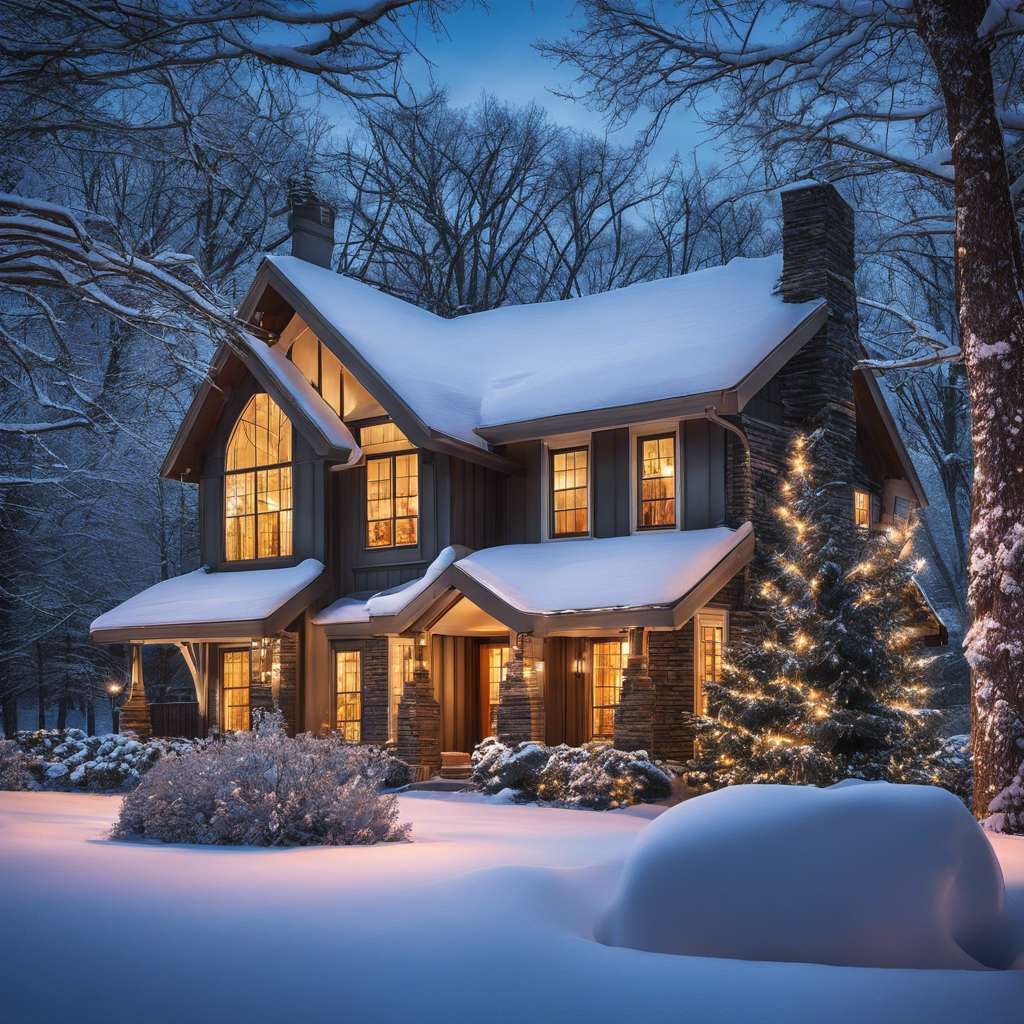Are you tired of dealing with the hassle and expense of frozen pipes in your Tulsa home? Well, fear not, for there is a solution that lies within the realm of your HVAC system.
By taking a closer look at the role of HVAC in preventing frozen pipes, you will discover a range of practical measures that can save you from the inconvenience and potential damage caused by frozen pipes.
But how exactly does your HVAC system play a part in this? Let’s explore together the ins and outs of:
- Insulating exterior pipes
- Maintaining proper indoor temperatures
- Ensuring adequate airflow
- Regularly checking and cleaning HVAC filters
- Identifying and addressing potential system issues.
Through these key steps, you will gain invaluable insights into safeguarding your home against the freezing temperatures that Tulsa winters often bring.
Key Takeaways
- Properly insulating exterior pipes using foam pipe insulation sleeves and heat tape can help prevent frozen pipes in Tulsa.
- Maintaining proper indoor temperatures through energy-efficient heating and humidity control is essential for preventing frozen pipes.
- Ensuring adequate airflow by evaluating ductwork, sealing cracks, installing vents, and cleaning filters can help prevent stagnant air and reduce the risk of frozen pipes.
- Regularly checking and cleaning HVAC filters, as well as addressing potential HVAC system issues promptly, are crucial for preventing frozen pipes in Tulsa.
Insulating Exterior Pipes
To prevent frozen pipes in Tulsa, it’s highly recommended to insulate your exterior pipes. Proper pipe insulation techniques are essential in preventing frost-related issues.
One effective method is using foam pipe insulation sleeves. These sleeves are designed to fit snugly around the pipes, providing a layer of insulation that helps to maintain a consistent temperature.
Another technique is using heat tape, which is wrapped around the pipes and can be activated to generate heat when the temperature drops below a certain threshold.
Additionally, insulating the walls and floors near the exterior pipes can help to further protect them from freezing.
Maintaining Proper Indoor Temperatures
Maintaining proper indoor temperatures is crucial in preventing frozen pipes in Tulsa. To achieve this, it’s essential to focus on energy efficient heating and maintaining proper humidity levels.
Proper heating ensures that the temperature in your home remains above freezing, preventing pipes from freezing and potentially bursting. Energy efficient heating systems, such as programmable thermostats and zone control systems, can help regulate and maintain the desired temperature while minimizing energy consumption.
Additionally, it’s important to maintain proper humidity levels to prevent condensation and moisture buildup, which can lead to frozen pipes. Using a humidifier during the winter months can help keep the humidity levels within the recommended range of 30-50%.
Ensuring Adequate Airflow
By ensuring adequate airflow within your home, you can further prevent frozen pipes in Tulsa and maintain proper indoor temperatures.
One way to achieve this is by conducting a thorough ductwork evaluation. Inspect your ducts for any leaks, blockages, or obstructions that may hinder airflow. Seal any cracks or gaps using appropriate sealants to prevent air leakage.
Additionally, consider improving ventilation by installing vents in strategic areas to allow for proper air circulation. This will help distribute heat evenly and prevent stagnant air, reducing the risk of frozen pipes.
Regularly cleaning and maintaining your vents and filters is also crucial to ensure optimal airflow.
Regularly Checking and Cleaning HVAC Filters
Regularly checking and cleaning HVAC filters is essential for maintaining proper airflow and preventing frozen pipes in Tulsa. HVAC filters play a crucial role in improving energy efficiency and ensuring the smooth operation of your heating and cooling system.
It’s important to understand the importance of professional HVAC maintenance and the tips for improving HVAC energy efficiency.
Professional HVAC maintenance involves regular inspection and cleaning of filters by trained technicians. They’ve the expertise to identify any clogs or damages in the filters and rectify them promptly. Dirty filters can restrict airflow, leading to decreased efficiency and increased energy consumption. By cleaning or replacing filters regularly, you can prevent debris and dust buildup, allowing your HVAC system to function optimally.
To improve HVAC energy efficiency, it’s recommended to check and clean filters at least once every three months. This frequency can vary depending on factors like the number of occupants in the building, pets, and the surrounding environment. Additionally, using high-quality filters and following manufacturer guidelines for replacement can further enhance energy efficiency and prevent frozen pipes.
Regularly checking and cleaning HVAC filters not only promotes energy efficiency but also helps in maintaining a comfortable indoor environment. By taking proactive steps to keep your HVAC system in top condition, you can ensure its longevity and prevent costly repairs. Remember, a well-maintained HVAC system not only saves energy but also contributes to a sustainable and eco-friendly living environment.
Identifying and Addressing Potential HVAC System Issues
To effectively maintain your HVAC system and address potential issues, it’s crucial to conduct thorough inspections and promptly address any identified problems. Troubleshooting common problems and implementing appropriate HVAC maintenance tips will help ensure the optimal functioning of your system.
One common issue that may arise is a refrigerant leak. If you notice a decrease in cooling or heating performance, unusual noises, or ice buildup on the evaporator coil, it’s essential to have a professional technician inspect and repair any leaks.
Another issue to watch out for is faulty electrical connections or controls. If you experience frequent system cycling, inconsistent temperatures, or unresponsive controls, it’s necessary to have an expert technician assess and resolve these electrical issues.
Frequently Asked Questions
How Can I Prevent Frozen Pipes if I Don’t Have Access to Insulation Materials for Exterior Pipes?
If you lack insulation materials for exterior pipes, there are alternative methods to prevent frozen pipes. Focus on maintaining an indoor temperature range above freezing, and regularly check your HVAC system for potential issues that may affect pipe protection.
Are There Any Specific Temperature Ranges I Should Maintain Indoors to Prevent Frozen Pipes?
To prevent frozen pipes, you should maintain specific temperature ranges indoors. Keeping your thermostat set at a minimum of 55 degrees Fahrenheit can help prevent pipes from freezing and bursting, ensuring a warm and cozy home.
What Are Some Signs of Inadequate Airflow That I Should Look Out For?
If you’re concerned about inadequate airflow, keep an eye out for signs like uneven temperature distribution, weak airflow from vents, and excessive dust accumulation. These indicators suggest that your HVAC system may need attention.
How Often Should I Check and Clean My HVAC Filters?
You should check and clean your HVAC filters regularly to ensure proper airflow. Following a checklist for maintenance will help you avoid issues and maximize the benefits of regular maintenance.
How Can I Identify Potential HVAC System Issues Before They Cause Frozen Pipes?
To identify potential HVAC issues before they cause frozen pipes, you should regularly inspect your system for signs of wear or damage. Look for leaks, clogged filters, and inadequate insulation. Proper maintenance can prevent costly repairs and keep your pipes from freezing.


